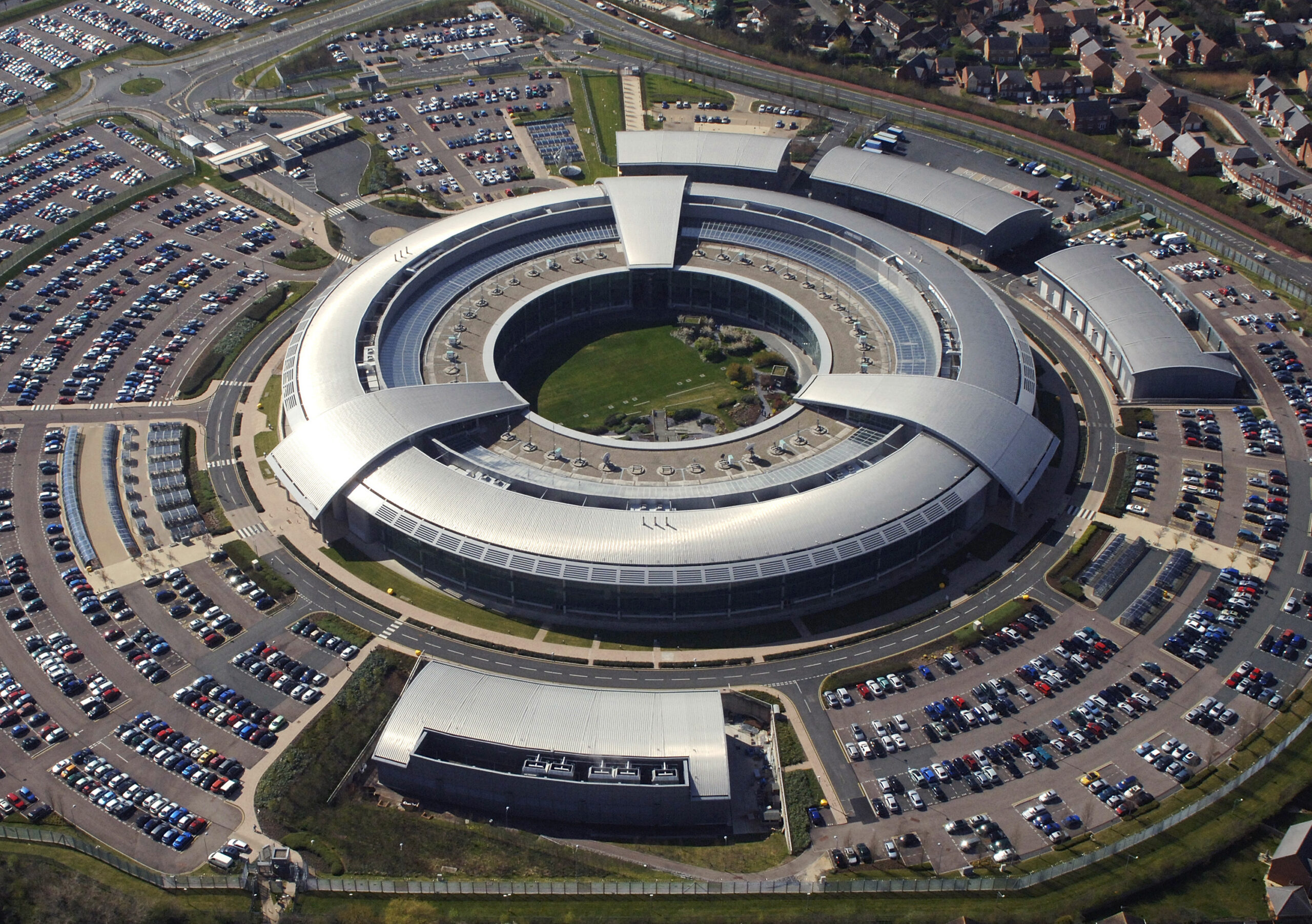Just days before London hospitals suffered one of the worst health service cyber incidents since WannaCry, NHS England awarded a duo of deals to create a central security response team
NHS England has spent £3m on a duo of contracts intended to provide a squad of expert “boots on the ground” to help organisations across the health service respond to cyberattacks.
On 15 May, the national body signed a deal with KPMG. A week later, a second agreement was put in place with Deloitte.
The two engagements appear identical, and each covers “cyber incident response” services. The contracts run for a period of two years, with expected spending of up to £1.5m apiece.
The professional services companies – which represent half of the so-called ‘big four’ accounting and consulting firms – will collectively provide a centralised team that will, when required, be directed to support NHS entities that have suffered a cyberattack or other form of technical security incident.
“These services are to provide a Cyber Incident Response Team (CIRT) to NHS England and other organisations in the NHS ecosystem during cyber incidents,” the contract notices say. “The CIRT provides ‘boots on the ground’ support to investigate and recover from cyber incidents.”
Related content
- Cybercriminals release ‘substantial amount’ of Scottish NHS data
- Capita admits possible compromise of customer data during cyberattack
- Cyber Security Week: Analysis – how and where are attackers getting in?
The deals came into effect just a matter of days before two major NHS trusts – treating a collective total of 10,000 patients each day in hospital and care facilities across London – were impacted by one of the worst cyber incidents to affect the health service since the WannaCry attack of 2017.
As with WannaCry, the incident earlier this month was a ransomware assault – which was perpetrated on Synnovis, a joint venture providing pathology services to Guy’s and St Thomas’ and King’s College NHS trusts.
More than a week after the incident was detected, the trusts continue to experience disruption to frontline services. While some procedures have been cancelled as a result of the attack, patients are currently advised to attend scheduled appointments unless advised otherwise – but those attending A&A are warned that of increased delays due to difficulties obtaining blood test results.
NHS leaders in Scotland, meanwhile, have also faced a cyber emergency in recent weeks, after a serious attack suffered by the health board in Dumfries and Galloway. Following the incident, attackers have published on the dark web what is understood to be a large volume of patient data – in what managers have described as “an abhorrent criminal act”.





벼룩시장 신문그대로보기 (구인구직, 부동산) 벼룩시장 신문그대로보기 바로가기 그리고 지역별 벼룩시장 종이신문그대로보기 방법 (구인구직, 부동산) 알아볼게요. 교차로신문 같이 벼룩시장은 지역별 일자리, 구인구직, 부동산 등 다양한 정보를 제공해요. 교차로신문그대로보기 바로가기는 아래에서 확인하고, 오늘은 벼룩시장 신문그대로보기 바로가기 그리고 사용법 섹스카지노사이트
Normally I do not read article on blogs, but I would like to say that this write-up very forced me to try and do it! Your writing style has been amazed me. Thanks, quite nice post.
Howdy! Would you mind if I share your blog with my twitter group? There’s a lot of people that I think would really appreciate your content. Please let me know. Many thanks
You made some decent factors there. I regarded on the internet for the problem and found most individuals will associate with together with your website.
I’m not sure why but this web site is loading very slow for me. Is anyone else having this issue or is it a issue on my end? I’ll check back later on and see if the problem still exists.
I think this is one of the most significant info for me. And i am glad reading your article. But wanna remark on some general things, The site style is perfect, the articles is really nice : D. Good job, cheers
A mens college jacket is a timeless piece that adds style and warmth to any wardrobe. Perfect for casual outings or as part of a layered look, this jacket combines comfort with collegiate charm. Whether you’re attending classes or hanging out with friends, a men’s college jacket offers versatility and classic appeal.
https://infohelpforyou.com/tag/ec96b4eca98ceb8ba4-eba788eca3bcecb99c-eab7b8eb8c80-ebb3b4eb9faceab080eab8b0/
https://madreviewer.tistory.com/tag/쿠팡20로켓
https://klero.tistory.com/tag/국민행복기금20소액대출20대상
medicine in mexico pharmacies: Mexican Easy Pharm – Mexican Easy Pharm
https://mrdeeply.tistory.com/446
mexican online pharmacies prescription drugs https://mexicaneasypharm.com/# reputable mexican pharmacies online
purple pharmacy mexico price list
https://semapharm24.shop/# semaglutide tablets
can i buy prednisone online without prescription
https://predpharm.shop/# PredPharm
best pharmacy prednisone
https://semapharm24.com/# SemaPharm24
prednisone 10mg
https://predpharm.com/# Pred Pharm
prednisone 20 mg tablet price
https://semapharm24.com/# semaglutide tablets
can you buy prednisone online uk
https://dappharm.com/# DapPharm
average cost of prednisone
http://semapharm24.com/# semaglutide best price
400 mg prednisone
https://new-software.download/windows/spotify/
http://predpharm.com/# prednisone 10mg price in india
prednisone 10 mg tablet
https://kamapharm.com/# cheap kamagra
prednisone 2.5 mg price
https://honeytipit.tistory.com/tag/진주교차로20부동산
https://cytpharm.shop/# CytPharm
prednisone 40 mg price
https://kamapharm.shop/# Kamagra 100mg price
prednisone 80 mg daily
https://farmasilditaly.com/# viagra generico sandoz
comprare farmaci online con ricetta
phmacao club phmacao.life Many casinos provide shuttle services for guests.
Las mГЎquinas tragamonedas tienen temГЎticas diversas.: jugabet.xyz – jugabet chile
Slot machines attract players with big jackpots. https://taya777.icu/# The casino experience is memorable and unique.
https://bestkkultip.tistory.com/11
https://jugabet.xyz/# Los torneos de poker generan gran interГ©s.
The casino scene is constantly evolving.
Security measures ensure a safe environment. http://phmacao.life/# Gambling regulations are strictly enforced in casinos.
taya777 register login taya777 register login Loyalty programs reward regular customers generously.
High rollers receive exclusive treatment and bonuses. https://taya365.art/# Most casinos offer convenient transportation options.
http://taya365.art/# High rollers receive exclusive treatment and bonuses.
Entertainment shows are common in casinos.
The casino experience is memorable and unique. https://jugabet.xyz/# Hay reglas especГficas para cada juego.
taya365 login taya365 п»їCasinos in the Philippines are highly popular.
https://phmacao.life/# Game rules can vary between casinos.
Gambling can be a social activity here.
Most casinos offer convenient transportation options.: phmacao – phmacao.life
Many casinos provide shuttle services for guests. http://jugabet.xyz/# Las tragamonedas ofrecen grandes premios.
http://phtaya.tech/# Gambling can be a social activity here.
Players often share tips and strategies.
Some casinos feature themed gaming areas.: taya365 login – taya365.art
winchile winchile.pro Los casinos celebran festivales de juego anualmente.
Entertainment shows are common in casinos. https://winchile.pro/# La iluminaciГіn crea un ambiente vibrante.
http://winchile.pro/# Algunos casinos tienen programas de recompensas.
The casino atmosphere is thrilling and energetic.
Some casinos feature themed gaming areas. https://winchile.pro/# Los torneos de poker generan gran interГ©s.
phtaya login phtaya The Philippines has several world-class integrated resorts.
High rollers receive exclusive treatment and bonuses.: taya777 login – taya777 register login
Players can enjoy high-stakes betting options. http://winchile.pro/# Los croupiers son amables y profesionales.
http://phtaya.tech/# Gaming regulations are overseen by PAGCOR.
The poker community is very active here.
Las promociones de fin de semana son populares.: winchile – winchile
Many casinos offer luxurious amenities and services. https://taya365.art/# Casino promotions draw in new players frequently.
phtaya casino phtaya Gambling can be a social activity here.
http://taya365.art/# The ambiance is designed to excite players.
Players enjoy a variety of table games.
Live dealer games enhance the casino experience.: taya777 register login – taya777 register login
Slot machines feature various exciting themes. http://phtaya.tech/# Gambling can be a social activity here.
The casino atmosphere is thrilling and energetic.: phtaya.tech – phtaya.tech
taya777 login taya777 register login Many casinos provide shuttle services for guests.
Players can enjoy high-stakes betting options.: phtaya.tech – phtaya
강남콜걸
http://taya365.art/# Some casinos feature themed gaming areas.
Slot machines attract players with big jackpots.
The casino industry supports local economies significantly.: taya777 app – taya777 register login
winchile casino winchile.pro Los casinos ofrecen entretenimiento en vivo.
Loyalty programs reward regular customers generously.: phmacao casino – phmacao club
п»їLos casinos en Chile son muy populares.: jugabet – jugabet
Many casinos host charity events and fundraisers. http://phtaya.tech/# The gaming floors are always bustling with excitement.
Players can enjoy high-stakes betting options. https://jugabet.xyz/# La mayorГa acepta monedas locales y extranjeras.
Los jugadores pueden disfrutar desde casa.: jugabet.xyz – jugabet.xyz
winchile winchile casino La pasiГіn por el juego une a personas.
Many casinos offer luxurious amenities and services.: phmacao club – phmacao com login
The Philippines offers a rich gaming culture.: taya365 login – taya365.art
mexican pharmaceuticals online п»їbest mexican online pharmacies xxl mexican pharm
easy canadian pharm: easy canadian pharm – easy canadian pharm
canada pharmacy not requiring prescription https://megaindiapharm.shop/# Mega India Pharm
canadian prescription pharmacy https://xxlmexicanpharm.shop/# xxl mexican pharm
drugmart: discount drug mart – drug mart
rx pharmacy no prescription https://discountdrugmart.pro/# discount drug pharmacy
mexico drug stores pharmacies xxl mexican pharm reputable mexican pharmacies online
canada pharmacy coupon http://familypharmacy.company/# online pharmacy delivery usa
canadian pharmacy without prescription: online pharmacy delivery usa – online pharmacy delivery usa
foreign pharmacy no prescription https://discountdrugmart.pro/# discount drug mart pharmacy
safe canadian pharmacy: reliable canadian pharmacy – easy canadian pharm
easy canadian pharm safe reliable canadian pharmacy easy canadian pharm
online pharmacy prescription https://easycanadianpharm.shop/# easy canadian pharm
Mega India Pharm MegaIndiaPharm reputable indian online pharmacy
non prescription medicine pharmacy https://xxlmexicanpharm.com/# pharmacies in mexico that ship to usa
cheapest pharmacy for prescriptions without insurance http://easycanadianpharm.com/# buying from canadian pharmacies
easy canadian pharm: canadianpharmacy com – easy canadian pharm
cheapest pharmacy to get prescriptions filled https://discountdrugmart.pro/# drugmart
prescription free canadian pharmacy https://easycanadianpharm.com/# easy canadian pharm
family pharmacy family pharmacy online pharmacy delivery usa
offshore pharmacy no prescription http://easycanadianpharm.com/# easy canadian pharm
rx pharmacy no prescription https://megaindiapharm.shop/# п»їlegitimate online pharmacies india
reputable indian online pharmacy MegaIndiaPharm MegaIndiaPharm
easy canadian pharm: canadian pharmacy 24h com safe – best canadian online pharmacy
no prescription pharmacy paypal http://megaindiapharm.com/# best online pharmacy india
п»їlegitimate online pharmacies india: Mega India Pharm – MegaIndiaPharm
https://blog.naver.com/combine8589/223743339311